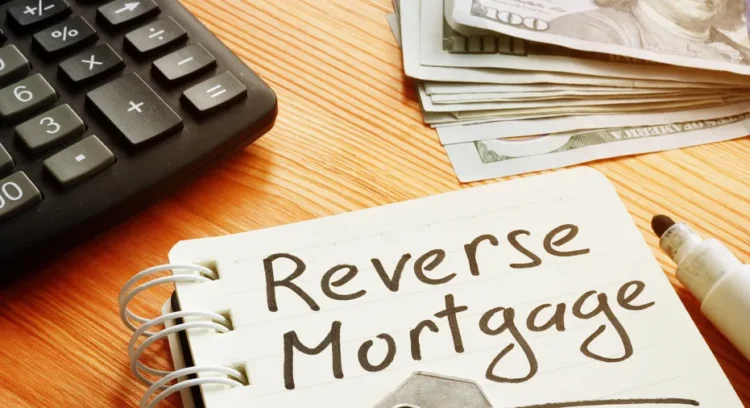We live in a time when the bank is our best friend. Of course, we mean the financial moment when we want to solve the housing issue or anything else for which we need money that we do not have. Loans and mortgages then offer a solution.
Page Contents
1. What exactly is a mortgage?

Source: cnn.com
A mortgage is a form of guarantee to the bank that you will fulfill your obligations to it on time. We have already mentioned that a large number of the population has taken out at least one loan in their lifetime. Of course, we also know that in addition to the loan base, you are obliged to repay the interest rate, which differs from bank to bank. In order for the bank to grant you a loan, you need to have one or two guarantors who will guarantee regular payment of the monthly installment, and that, if the borrower does not meet its obligations, all claims will be directed to them.
This is exactly what makes the difference between a regular mortgage and a mortgage. If you mortgage your house when taking out a housing loan, it would mean that you do not need guarantors, but also that the bank has the right to take it away from you if there are no monthly installments. Those, who are buying real estate for the first time by mortgaging it, are certainly ready to find out as much as possible about it. Find the best mortgage rate at Ownup.com.
2. Current financial situation
A step from which one can start and which can never be skipped. Job insecurity is the most common problem faced by many because it is difficult to plan and make financial decisions if you are unsure of your future income. Before any borrowing, everyone must estimate what part of their monthly income they can count on and therefore determine how much they will be able to repay each month.
3. Collection of documentation

Source: unsplash.com
It’s never too early to get started with this part of the job. The more documentation you gather at the beginning, the more information you will have about the property. The more you know about real estate, the easier it is to predict the outcome of the loan, and thus the sale.
When you are trying to qualify for a loan, you will need to provide proof of income. Lenders will also check your credit reports to determine what other forms of debt – student loans, personal loans, car loans, etc. – you have. They will use this information to calculate your debt-to-income ratio: the amount of money you owe in relation to your income.
4. The sum is usually approved in 80% of the value of the property
Mortgage loans are non-purpose cash loans that are approved with a bank lien on real estate. Up to a maximum of 80% of the property value is approved, ie a ratio of 1: 1.20. They are usually approved for a period of 7 to 20 years (sometimes longer), and the funds of the approved loan are transferred to the account of the borrower’s account – which means that the bank does not control the purpose of use of funds. repayment period of an average of 20 or 30 years, which is most often approved by banks and other specialized financial institutions such as housing savings banks and mortgage banks on the basis of private or commercial real estate or movable property. Since these are large amounts, we advise you to consult your broker about everything. You can visit clsmoney.com.
5. Reverse mortgage

Source: foxbusiness.com
There is also something called a reverse mortgage, but it is intended for the elderly. What is it all about? This innovation in the financial market provides retirees, ie all elderly people who own any property, with a new source of funding to supplement their monthly budget, with great emphasis on being guaranteed by law that lifelong property owners and spouses can stay in their own homes. Older people have a problem with how to use housing wealth for today’s consumption. The term “reverse” was given due to the fact that instead of the borrower paying the monthly amount to the lender, the lender pays it to the borrower.
6. Interest rate
We have already mentioned that the interest rate varies from one bank to another. What also differs is the type of interest rate. In essence, there are three types – fixed, applicable, and mixed. The fixed interest rate is defined by the contract and does not change during the entire period for which you have taken out a loan. However, there is still a risk that interest rates for certain currencies will be higher. On the other hand, we have a variable interest rate consisting of two parts: one part is fixed and defined by the contract, and the other part is variable and depends on the movement of the reference market interest rate for a particular currency. And this is something to which the broker will give you the best answer, as well as advice.
7. Mortgage payment time

Source: thebalance.com
After signing the contract, it takes a few days for the money to be paid to you. The time that elapses between the presentation of the required documentation and the actual availability of the requested amount varies from bank to bank, but is always stated on the “Form” provided by the credit institution, which contains general information. Therefore, it is necessary to inquire with the selected bank.
Final thoughts
There is no doubt that the mortgage is increasingly becoming one of the basic instruments for securing receivables, whether it is about securing the return of funds or securing other receivables whose payment is contracted in cash. In economic terms, mortgages are especially important because they provide loans with more favorable interest rates, which means that capital is cheaper, and the economy is more competitive. Thus, it enables the dynamic development of the credit market and represents an instrument for activating social wealth.
There are also those cases that want to repay the loan before a certain time. Of course, this is possible, but you need to find out if this will lead to additional costs.





